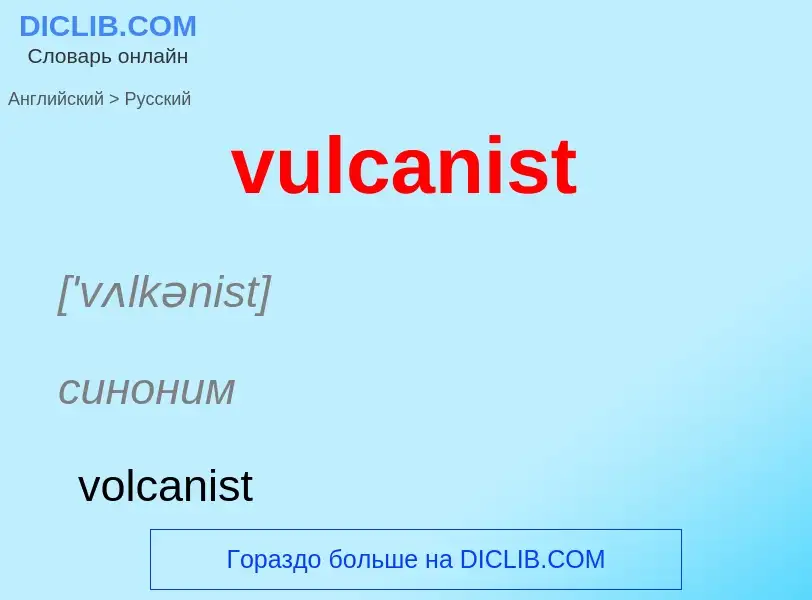Перевод и анализ слов искусственным интеллектом ChatGPT
На этой странице Вы можете получить подробный анализ слова или словосочетания, произведенный с помощью лучшей на сегодняшний день технологии искусственного интеллекта:
- как употребляется слово
- частота употребления
- используется оно чаще в устной или письменной речи
- варианты перевода слова
- примеры употребления (несколько фраз с переводом)
- этимология
vulcanist - перевод на русский
['vʌlkənist]
синоним
[plu:'tɔniz(ə)m]
геология
плутонизм
вулканическая теория земной коры
существительное
геология
плутонизм
вулканическая теория земной коры
Википедия
Plutonism is the geologic theory that the igneous rocks forming the Earth originated from intrusive magmatic activity, with a continuing gradual process of weathering and erosion wearing away rocks, which were then deposited on the sea bed, re-formed into layers of sedimentary rock by heat and pressure, and raised again. It proposes that basalt is solidified molten magma. The theory lead to plutonic (intrinsic) rock classification, which includes intrinsic igneous rocks such as gabbro, diorite, granite and pegmatite. The name plutonism references Pluto, the classical ruler of the underworld and the Roman god of wealth. A main reason Pluto was incorporated into the classification was due to the plutonic rocks commonly being present in gold and silver ore deposits (veins).
The Oxford English Dictionary traces use of the word "plutonists" to 1799, and the appearance of the word plutonism to 1842.
Abbé Anton Moro, who had studied volcanic islands, first proposed the theory before 1750, and James Hutton subsequently developed it as part of his Theory of the Earth, published in 1788, which used the Glen Tilt of Perthshire as the prime example supporting his theory; an example used by Neptunism to prove their theory as well. The idea contested Abraham Werner's neptunist theory which proposed that the Earth had formed from a mass of water and suspended material which had formed rocks as layers of deposited sediment which became the continents when the water retreated, further layers being deposited by floods and some volcanic activity.
Plutonists strongly disputed the neptunist view that rocks had formed by processes that no longer operated, instead supporting Hutton's theory. A key issue of the debate revolved around the neptunist belief that basalt was sedimentary, and some fossils had been found in it. Against this, Hutton's supporter John Playfair (1748-1819) argued that this rock contained no fossils as it had formed from molten magma, and it had been found cutting through other rocks in volcanic dykes. The arguments continued into the early 19th century, and eventually the plutonist views on the origin of rocks prevailed in the wake of the work of Charles Lyell in the 1830s, who incorporated this theory into uniformitarianism. However, geologists regard sedimentary rocks such as limestone as having resulted from processes like those described by the neptunists.
Comparatively, plutonism within uniformitarianism is equivalent to neptunism within catastrophism, as both are used as core concepts within their respective theories, and hence similarly, neptunism opposes plutonism in the same way that catastrophism opposes uniformitarianism.






 in Beaver River Diabase (Beaver Bay Complex, Mesoproterozoic, 1096 Ma) (Split Rock Lighthouse, Minnesota, USA) 2.jpg?width=200)


